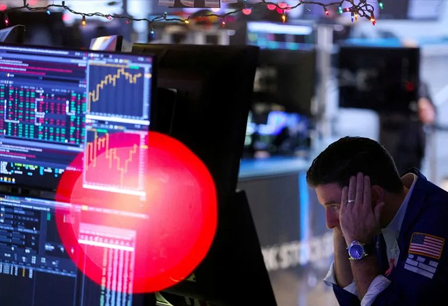Inflation has been one of the biggest pain points in the economy for the last couple years, but the end may be in sight.
Some experts see inflation as measured by the Consumer Price Index being around 2% — the Fed's target year-over-year rate of price growth — by some time in 2024.
The Consumer Price Index increased 3.2% year over year in October, far below the incredibly high 9.1% year-over-year increase in June 2022. October's increase is also a lower year-over-year rise than August's and September's.
Core CPI, which excludes food and energy, rose 4.0% in October from October 2022. That increase is not only just under the 4.1% increase in September, but it's the smallest rise since September 2021.
"Slower consumer demand, reduced housing rents, lower profit margins, easing wage growth and restrictive monetary policy represent the ideal disinflationary combo heading into 2024," Gregory Daco, EY's chief economist, said in recent commentary.
"We foresee headline and core CPI inflation around 2.2% y/y in Q4 2024," Daco said in his commentary.
David Kelly, chief global strategist of J.P. Morgan Asset Management, had similar thoughts in his commentary after the release of the CPI report on Tuesday.
"Overall, this report confirms that CPI inflation remains on a track to fall to close to 2% year-over-year by the fourth quarter of 2024 and that consumption deflator inflation still looks likely to fall below the Fed's 2% target over the same time frame," Kelly said.
An article from ING's James Knightley before the new CPI data was published said "we forecast headline inflation to be in a 2-2.5% range from April onwards with core CPI testing 2% in the second quarter."
Still, the third quarter Bankrate Economic Indicator Survey of experts and economists done in September found 41% said getting to the target inflation rate won't be the case "until at some point by the end of 2025," as stated by Sarah Foster's reporting for Bankrate on the results.
And the Fed's Summary of Economic Projections from September showed that the central bank's key decision makers predicted 2.5% inflation in their preferred Personal Consumption Expenditures Price Index measure at the end of 2024, 2.2% for 2025, and 2.0% for 2026.
The year-over-year increases in the PCE Price Index for July, August, and September were all the same at 3.4%.
A Goldman Sachs article also said "the hard part of the inflation fight looks over" and that core "inflation is on track to fall further in 2024."
Core PCE growth was 3.7% year over year this September. Goldman Sachs forecasts that measure is expected to cool off and see a 2.4% year-over-year increase in December 2024.
Jerome Powell, chair of the Federal Reserve, said at a policy panel earlier this month that the Federal Open Market Committee "is committed to achieving a stance of monetary policy that is sufficiently restrictive to bring inflation down to 2% over time; we are not confident that we have achieved such a stance."
"If it becomes appropriate to tighten policy further, we will not hesitate to do so," Powell said. "We will continue to move carefully, however, allowing us to address both the risk of being misled by a few good months of data, and the risk of overtightening."
People are still feeling inflation's impact even if it has cooled off.
Mark Hamrick, senior economic analyst for Bankrate, recently told Business Insider based on Bankrate survey results of US adults that half of them feel their financial situation has worsened from where it stood in November 2020.
Hamrick said while there are things in the economy indicating strength, "there are many things that undermine confidence of consumers and business."
"It's been an ongoing theme where I'm talking to people about data, even talking to non-journalists about data, and I think some people have a hard time extracting where the negative tone is originating," Hamrick said. "I think this survey, because cost of living is essentially the number one irritant where people are saying that's the primary thing that's substantially worse over the last three years, it ends up being that inflation is obviously the reason."












